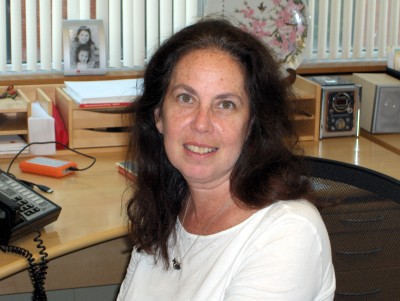
Starting Sept. 14, Linda Hyman, associate provost for the Division of Graduate Medical Sciences at Boston University School of Medicine, will begin serving a one-year term as director of molecular and cellular biosciences at the National Science Foundation.
The NSF stands as a funding source for roughly 24 percent of all federally supported research conducted by American colleges and universities, something Hyman understandably has some interest in. According to Hyman, the opportunity to serve as a director at NSF is wonderful because it will provide her with the chance to learn about both how the government works and how to influence policy and the direction of science.
Hyman has been involved with NSF for a large portion of her career, as she was a manager of a genetics research project portfolio 15 years ago. She credits this experience as being an “eye-opener” that influenced her to shift her career trajectory toward a more administrative track.
“In [my new] role, I will become engaged with the broader scientific community,” she said. “I will be getting back to cutting-edge science nationally and internationally. NSF is asking itself how [it] can use the taxpayers’ dollars [for] the most impactful discoveries.”
In her new administrative position, Hyman will oversee the allocation of research funding and policy setting and will not maintain an active research facility as she had before. Her duties now demand heavy decision-making while still demanding transparency and accountability to both the government and broader community.
“My leadership style is to go on a listening tour and hear what the big issues are before making any big decisions,” she said.
Though Hyman will be stationed at NSF’s headquarters in Arlington, Virginia, she will be commuting back and forth to BU twice a month.
“One of the perks of [this year] is that I get to keep active in both worlds,” she said. “NSF recognizes that they’re borrowing faculty from institutions so they make it so [we] can stay engaged in our home institutions.”
In addition to her efforts to stay involved at BU, Hyman’s team at the Division of Graduate Medical Sciences will support her by taking over the smallest of her former duties.
“The assistant dean will be stepping in for day-to-day duties,” she said, “but I expect to be fully engaged in major decisions.”
The molecular and cellular biosciences division invests heavily in systems and synthetic biology, genetic mechanisms, gene regulation and neuroscience. Since BU has similar major initiatives on the brain, Hyman’s goal is to bring back what she learns in order to enhance BU’s scientific community. The ability to wear “both hats” this year — one for NSF and one for BU — is what Hyman ultimately considers one of her biggest strengths.
“BU has a lot of research strength in neuroscience,” she said. “I hope to learn [from NSF] and inform our community [on] how we can best leverage our own research.”
Hyman also noted that her move to NSF is part of the Intergovernmental Personnel Act, which provides temporary assignment of personnel between the federal government and, in her case, universities. She hopes that faculty members like her will be able to bring new viewpoints to the government’s attention.
“Those who are visiting come in with a fresh perspective because we [the universities] are in the trenches,” she said. “We’re like fresh air for the government, which is often needed … I hope that I can make a contribution in a small way and affect changes that will serve the community. Seeds that you plant now can ultimately grow into real change and that’s why we’re doing it — to make a difference.”























































































































